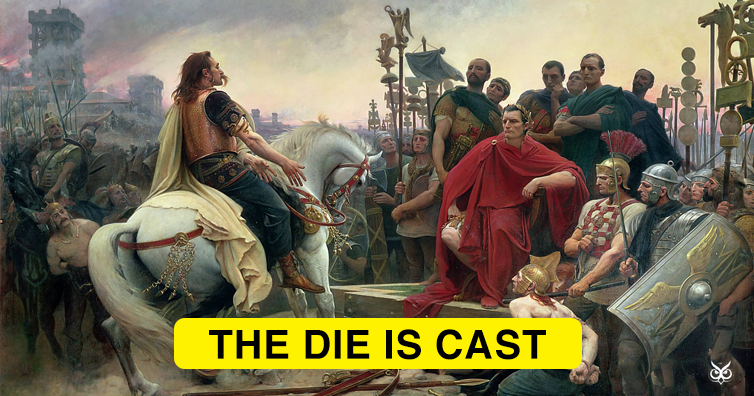The phrase “the die is cast” (Latin: Alea iacta est) is frequently used to signify that a decision has been made or the events have passed the point of no return. It is attributed by the Roman historian Suetonius to Julius Caesar but have you ever wondered what’s the origin of the phrase?
Here’s the story.
In 49 AD, Julius Ceasar led his army across of a small river of Northern Italy, the Rubicon river. “Beyond this river, no flags, weapons or soldiers shall pass” read the inscription on the riverfront. You see, because Romans were afraid of coups, there was a Roman law that forbade crossing the Rubicon river and thus reaching the capital city of Rome. Pompey and Cicero already warned Caesar that he should go alone in the city, not with his army of the 13th legion. (the article continues after the ad)
But Julius Ceasar knew his fate. Political intrigues and bureaucrats would have killed him if he went alone. On the other hand, under the Roman law, crossing the river with his army meant that he and his legionaries were automatically sentenced to death. So he made his decision to cross the river with his army and said the famous phrase “the die is cast” as there was no turning back.
For the record, Julius Caesar not only did he win the battle, but in just two months, the future dictator managed to take over the whole of Italy with almost no resistance. And he did it with just 50,000 men.
If you like what you read, then you will definitely love this one: What’s The Origin Of The Phrase “Saved By The Bell”?
Main Article Photo: Musée CROZATIER du Puy-en-Velay
Photoshop: I’m A Useless Info Junkie
Sources: 49 BC – Why did Julius Caesar Say: “The Die is Cast”? | To Rule Mankind and Make the World Obey



